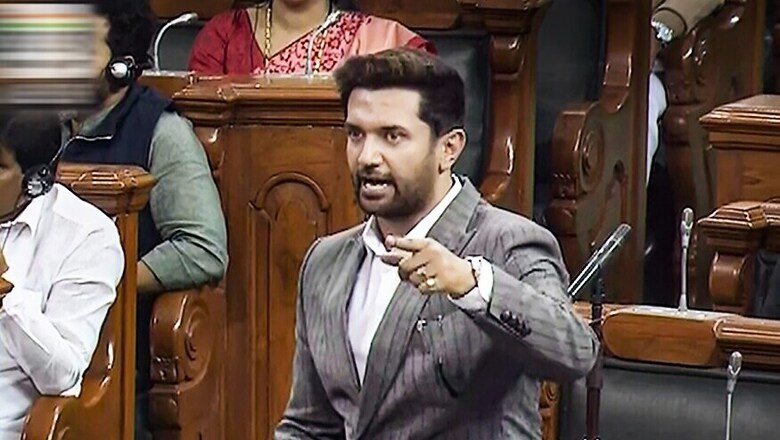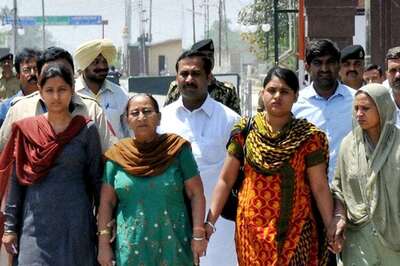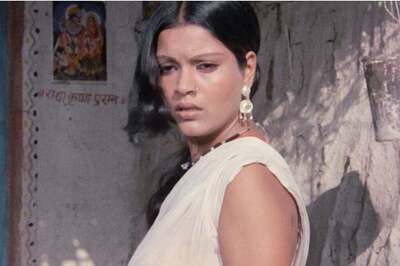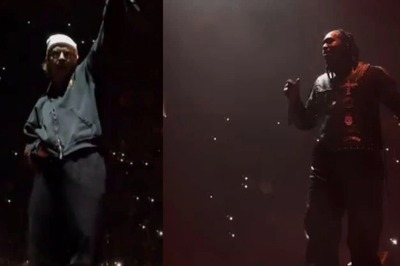
views
New Delhi: The Union government on Monday found itself on a back foot after several political parties, including some NDA allies, sought answers from the government on the Supreme Court ruling that said state governments were not bound to provide reservations in jobs and promotions.
Congress leader Adhir Ranjan Chowdhury launched an attack on the government in the Zero Hour. Along with Trinamool Congress MP Kalyan Banerjee, Chowdhury argued that since 2014 when the Narendra Modi government assumed power at the Centre, there has been a sustained attack on the reservation for STs and SCs.
Chirag Paswan, the chief of Lok Janshakti Party (LJP), a BJP ally, said, "The Lok Jan Shakti Party does not agree with the Supreme Court's decision that reservation for jobs and promotions, is not a fundamental right. We urge the Centre to intervene in this matter." Leader of another BJP ally Apna Dal (S), Anupriya Patel, also sought answers from the Centre on this.
Several Opposition leaders, including the Samajwadi Party (SP)’s Ram Gopal Yadav, who claimed that the verdict was not in the spirit of the Constitution, Nationalist Congress Party (NCP)’s Supriya Sule and AIMIM’s Asaduddin Owaisi also took on the Centre over the issue.
Dalit leader and Bhim Army chief Chandrashekhar Azad announced an intensive campaign on this issue later in the day.
Meanwhile, the Social Justice and Empowerment Minister Thawarchand Gehlot told both the Houses of Parliament that “the government is holding high-level discussions on the issue”.
What did the Supreme Court exactly say?
A bench of Justices L Nageswara Rao and Hemant Gupta said, "The state Government is not bound to make reservations. There is no fundamental right which inheres in an individual to claim reservation in promotions. No mandamus can be issued by the Court directing the State Government to provide reservations.”
The court further said the inadequacy of representation of SCs/STs is a matter within the subjective satisfaction of the state, subject to limited scope of judicial scrutiny because “it is for the state government to decide whether reservations are required in the matter of appointment and promotions to public posts”.
Why is it significant?
The apex court’s order effectively gives the state powers to decide on reservation, effectively making reservations optional. For instance, the Uttarakhand government, which was a party in this case, has decided not to implement reservations. This could have pan-India implications and antagonise social and political groups within the SC and ST communities.
How did the case come up in the SC?
In September 2012, the Uttarakhand government, which was then governed by the Congress, had decided to fill up posts in public services in the state without providing reservations to Scheduled Castes and Scheduled Tribes. The Uttarakhand High Court ruled against it in April 2019. The case then went to the Supreme Court which upheld the Uttarakhand government's decision.
Why is it politically sensitive?
Opposition parties have been attacking the government, under whose tenure, they claim, repeated assaults have been made on the reservation issue. In 2015, RSS chief Mohan Bhagwat talked about a relook at reservations, which some claimed cost the BJP the assembly elections in Bihar. In March 2018, the Supreme Court ruled that a "preliminary inquiry" should be held before lodging FIR under the SC/ST Act.
The second instance led to nationwide protests on April 2, in which many Dalits died reportedly in police firing. After coming under fire from various groups, the Union government finally introduced a bill overturning the SC order.
The order can be seen to be politically sensitive given the opportunity it provides to Opposition parties to corner the BJP in the upcoming polls, especially in a large state like Bihar which will see elections later this year.



















Comments
0 comment